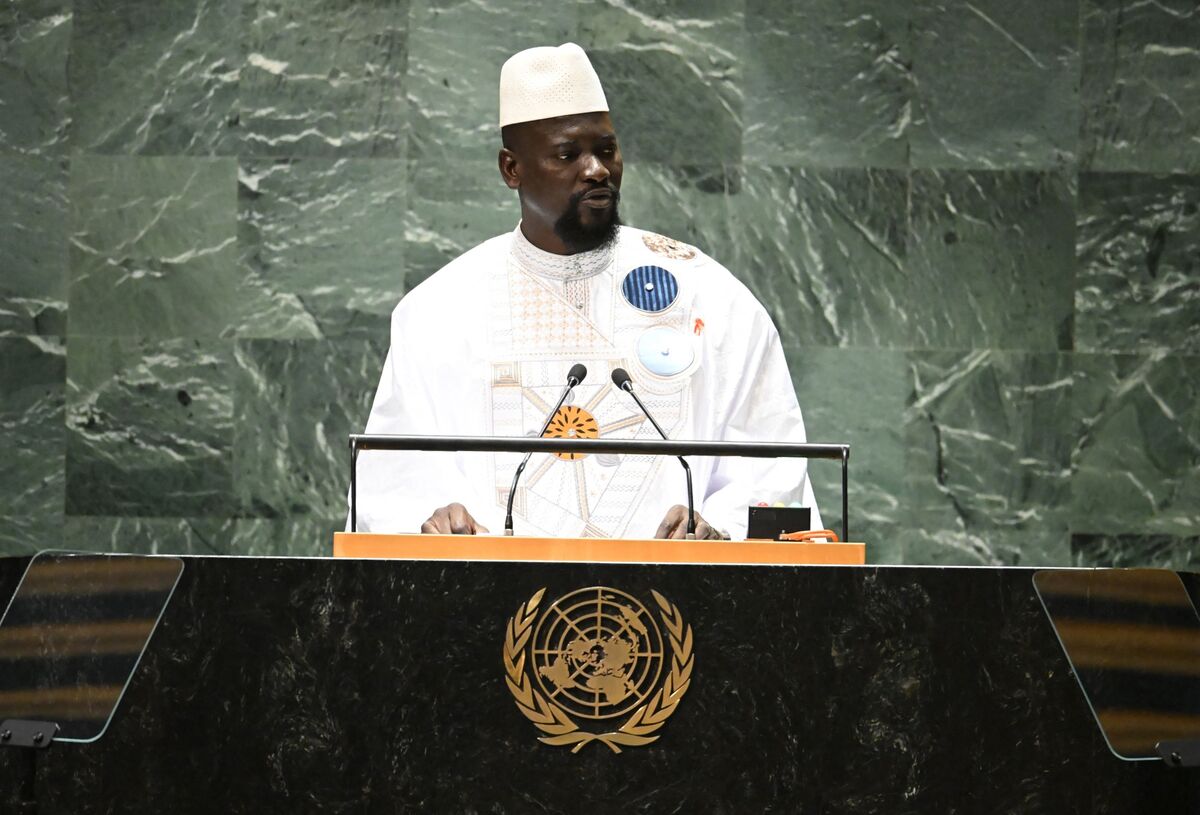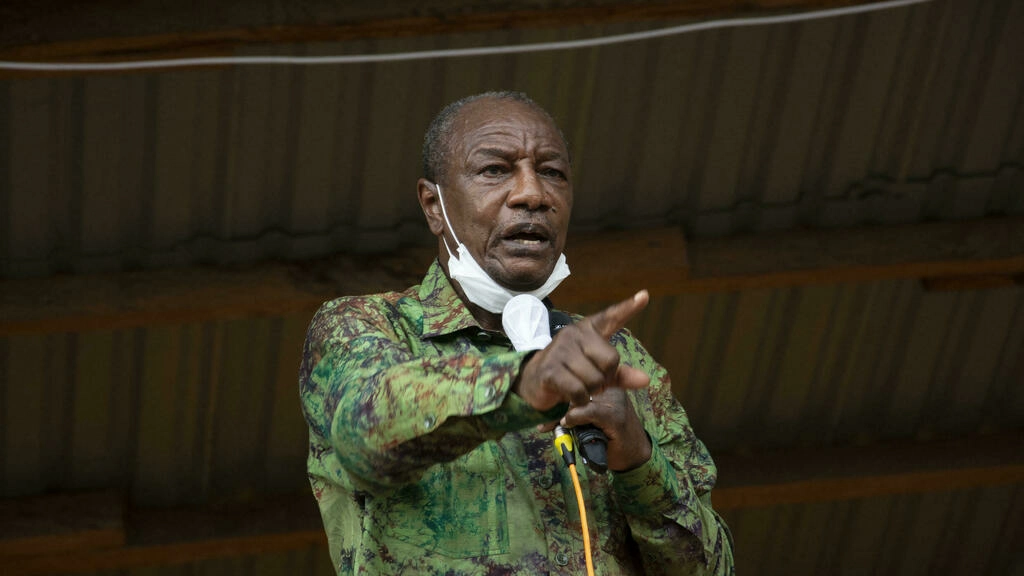This article is more than
6 year oldThe 60th Annual Grammy Awards: TV Review
Kendrick Lamar opened the 60th Grammy Awards with a performance so potent and exhilarating that "music's biggest night" struggled mightily for at least an hour and a half afterward. A group of two dozen black dancers in fatigues sang the word "America" in chorus, continuing after the harmony went into minor key, "God bless you if it's good to you." Behind them billowed a giant digital flag. A somber-looking Lamar — hip hop's answer to Ta-Nehisi Coates — spit a medley of "XXX" and "King's Dead" about black rage in the face of violence against African Americans ("Ain't no Black Power when your baby killed by a coward"). The evocation of survival (and the difficulty thereof) was further brought home when the dancers later appeared in crimson hoodies and matching sweatpants, their faces partially hidden behind scarlet mesh. In the middle of the performance, Dave Chappelle interrupted to pronounce, "The only thing more frightening than watching a black man be honest in America is being an honest black man in America."
U2's Bono and The Edge contributed to Lamar's medley, too, but they were afterthoughts — or, more cynically, concessions to an older, whiter, rock-obsessed demo that had little to do with the highlights of Sunday night's (too-long, thematically disjointed) awards ceremony. A pair of powerhouse performances — and a surprise cameo by Hillary Clinton via prerecorded sketch — gave this year's Grammys the thrilling jolts and compelling renditions that kept the three-and-a-half-hour show from devolving into a slog.
Going into the night, there was much to anticipate. Host James Corden, who didn't exactly wow viewers at home last year, would be getting a do-over. The self-described "least diverse host in Grammys history" would be presiding over "the most diverse group of nominees in Grammys history," who were poised to benefit from a new voting system within the Recording Academy. A group called Voices in Entertainment, led by music executives Meg Harkins and Karen Rait, urged a Time's Up-inspired "uniform" of white roses to signify solidarity with survivors of sexual harassment and assault. A tribute to the music fans who lost their lives to mass violence at concerts in Las Vegas and Manchester was also expected. And, of course, there's the toxic orange cloud that continues to hang over us all.
Bruno Mars — that chic, lighthearted Top 40 staple — swept the night's three biggest categories: best song, best record and best album. He was the apolitical choice: the hypothetical triumph of La La Land over Lamar's Moonlight. But it's hard to fault Mars when he and Cardi B delivered the purest fun of the night with their duet of "Finesse (Remix)," donning early '90s casual wear (complete with bucket hat) last seen on In Living Color. And the emotional and physical defiance of gravity that characterized their performance was a necessary contrast to the several speeches and ballads by women speaking out about #MeToo. (As with the Golden Globes, no man spoke up against the institutional challenges women face at the workplace.)
I probably started tearing up as soon as I spotted Kesha, donning a white suit evoking the suffragette movement, walking toward the microphone. Kesha delivered the night's other must-see moment, a musically controlled but powerfully raw performance of "Praying," a power ballad clearly meant to be a rebuke against Dr. Luke, the superstar producer she has accused of sexual, emotional and physical abuse. Sample lyrics: "You said that I was done/ Well, you were wrong and now the best is yet to come/ 'cause I can make it on my own."
Kesha found solidarity with Pink, who sang, "There's not enough rope to tie me down/ There's not enough tape to shut this mouth," in a casual loose T-shirt and jeans (underscoring the kinds of clothes women prefer to wear, as opposed to the sorts of skimpy costumes men like to see women in in the music industry). Janelle Monae provided the night's sole reminder that gender discrimination in music is an epidemic, rather than one high-profile individual case. "It's not just going on in Hollywood, or in Washington. It's right here in our industry as well," Monae said. "And just as we have the power to shape culture, we also have the power to undo the culture that does not serve us well." The white roses, in contrast, felt inessential. I'd argue that the white sneakers several female performers wore — including Best New Artist Alessia Cara and fellow nominee SZA — felt much more radically feminist, at least to this high-heel hater.
But spotlighting these compelling moments fails to capture the mix of boredom and botching that defined most of the show. The salute to fallen fans by country crooners Eric Church, Maren Morris and Brothers Osborne via Eric Clapton's "Tears in Heaven" was oversung and numbing, devoid as it was of any reference to the urgent issue of gun control despite the Las Vegas massacre being the deadliest mass shooting in U.S. history. (The selection of country singers for this part of the program also inadvertently downplayed the tragedy of the very young attendees who became casualties at an Ariana Grande concert in the U.K.) Logic's suicide-hotline rap "1-800-273-8255," featuring Cara and DJ Khaled, also felt ill-timed and out of sync, even with the rapper's much-needed response to Trump's infamous "shithole” comment: “Everybody is beautiful and the world is equal and we need to fight toward that.” A pro-Dreamers speech by Camila Cabello ("these kids can't be forgotten and are worth fighting for") felt similarly undercut by the Grammys' chosen spokesmen in favor of immigration: the marvelously preserved, but not exactly oppressed, Sting and Bono.
Corden did little to distinguish himself; he seemed nervous and came armed with a bevy of weak jokes, including a "Carpool Karaoke" segment on the NYC subway that felt about twice the length it should have been. But one sketch crackled: an "audition" for the audio recording of the Trump exposé Fire and Fury, featuring John Legend, Cher, a cheeky Cardi B and, finally, the most famous hiker in Chappaqua, N.Y. It wasn't funny per se — humor is one of the few things missing in Hillary Clinton's wide-ranging skill set — but it did make me grateful that the Grammys were at last trying to do something the show has never been accused of doing before: celebrating the underdogs.
Keywords
Newer articles
<p>Diddy's homes were recently raided in Los Angeles and Miami by Homeland Security.</p>
India calls for ‘immediate de-escalation’ amid Israel-Iran tensions
Why Israel is risking a dramatic escalation with Iran
Trump offers conditions for Ukraine aid renewal
Iron Dome, David’s Sling, Arrow: Israel’s air defense against Iran, explained
Israel’s War Leaders Don’t Trust One Another
Bianca Censori stuns in extreme v-neck dress
US helped Israel take down ‘nearly all’ Iranian drones and missiles – Biden
OJ Simpson to be cremated and no plans to donate brain to science, lawyer says
‘Their tactics have changed’: Russia’s bid to blow apart Ukraine’s power grid





